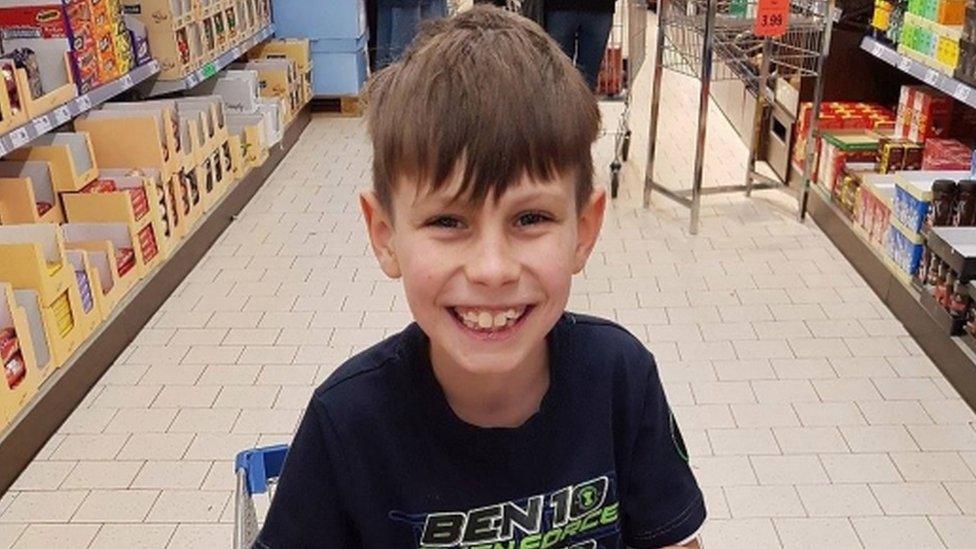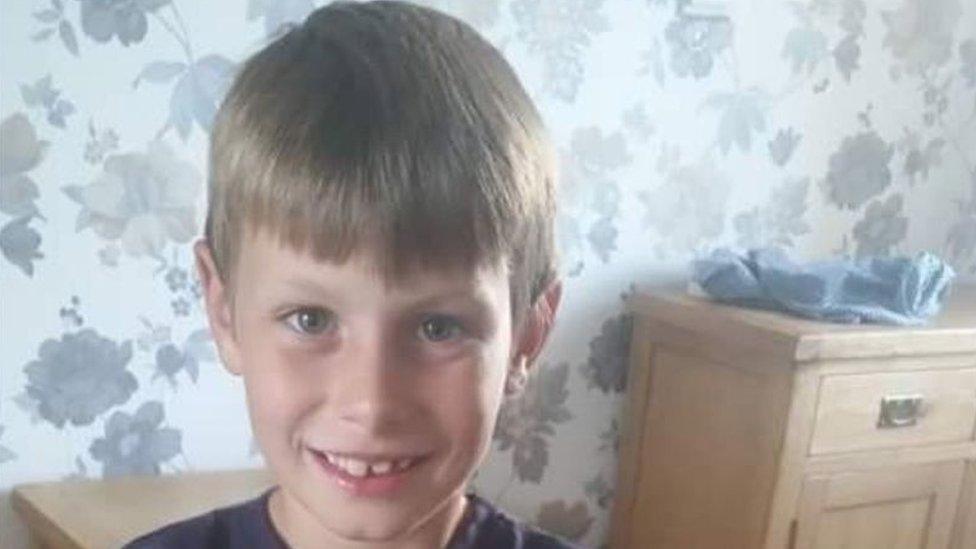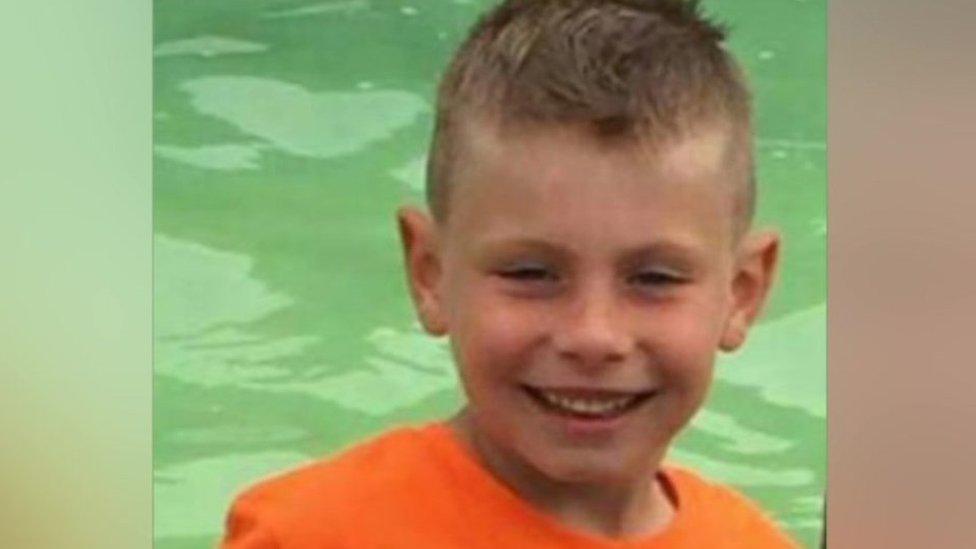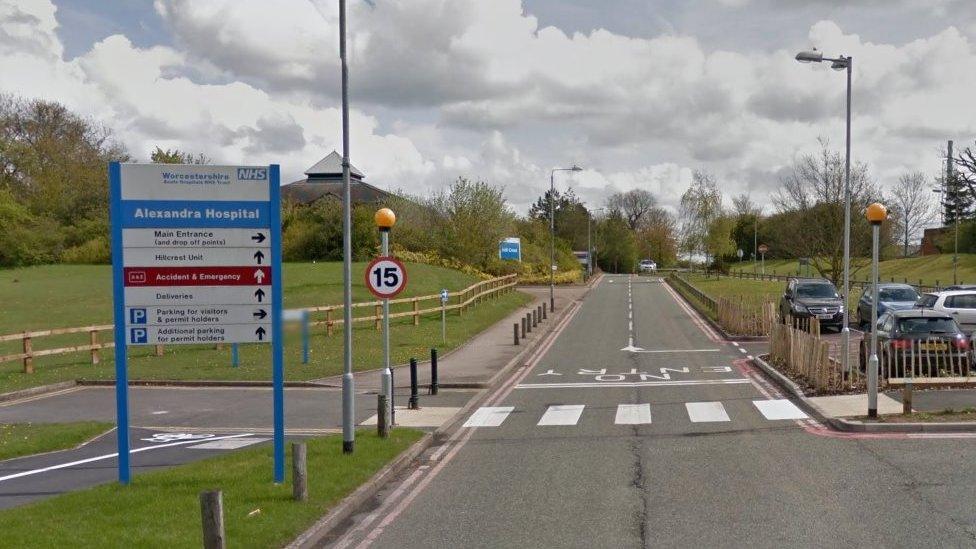Callum Cartlidge death: Mum will never forgive hospital
- Published
"I will never forgive them for what's happened"
A mother whose son died after not being given a life-saving blood test says she will "never forgive" the hospital.
Callum Cartlidge, aged eight, died after suffering a cardiac arrest at home in Redditch, Worcestershire, on 3 March 2017.
A coroner has said not giving a blood test to Callum, who had an undiagnosed rare illness, was "a failure to provide basic medical care".
The coroner said death would have been prevented if a blood test was done.
Callum, who has a twin brother, was discharged from Worcestershire Royal Hospital the day before his death with a diagnosis of gastroenteritis.
He had been suffering an Addisonian crisis, linked to undiagnosed Addison's disease, external.
Callum's mother, Stacey Cartlidge, said: "They didn't listen to me when I did ask them for a blood test.
"They kept saying he wasn't at the stage to have a blood test.
"So what stage would he have to be at to have a blood test?
"I will never forgive them for what's happened, never.
"My son's not here and if he'd had a blood test he would have survived."

Callum Cartlidge fell ill at his home in Redditch and was taken to Worcestershire Royal Hospital but later died
A medical expert told the inquest the test would have identified Callum's rare disease.
Recording a narrative verdict, Worcestershire assistant coroner David Reid said while not carrying out the blood test was a "serious failing", it was not a gross failing and he could not record a verdict of neglect.
Callum, who was described as usually a "cheeky chappie" was described as "lethargic and yellow" and regularly off school in the months before his death.
During the five-day hearing, the court was told how Callum had a 23-minute ambulance journey to Worcester hospital the day he died, rather than to the Alexandra Hospital, three minutes away, which stopped admitting children to A&E in 2016.
However, Mr Reid - who heard evidence from a paediatric emergency consultant - said he did not think it had been a factor in the boy's death.
Dr Andrew Short, the divisional medical director for Worcestershire Acute Hospitals NHS Trust, expressed its "deepest condolences" to the family and said despite their "best intentions, the outcome is not what we anticipated."
- Published3 May 2018

- Published2 May 2018

- Published1 May 2018

- Published30 April 2018

- Published29 April 2017

- Published7 September 2016
